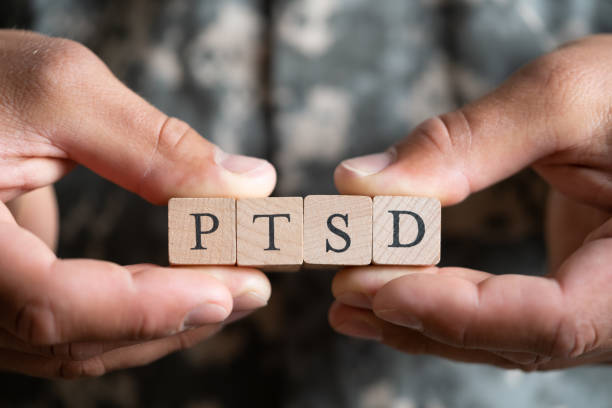PTSD, or post-traumatic stress disorder, significantly impacts a person’s life. It affects their physical health, emotional health, relationship with loved ones, and ability to perform daily tasks. People who have PTSD are more prone to substance abuse and addiction. That is why it is essential to treat the two conditions. Along with therapy and treatment, people with PTSD need love and empathy.
Here are seven ways you can assist a loved one suffering from PTSD and addiction:

Become Informed about PTSD:
Understanding the link between PTSD and drug abuse will assist you in helping your loved ones. Learning about the signs of post-traumatic stress disorder will help you detect the triggers in your loved ones. Identifying common factors, such as particular noises, smells, or settings that remind individuals of their trauma, will assist in creating a supportive environment that decreases potential triggers.
When learning about PTSD and substance abuse treatment, ensure a nonjudgmental approach towards the person suffering. Engage in discussions with mental health specialists, read reliable resources, or visit support groups to acquire a variety of viewpoints on how PTSD affects different people.
Be a good listener
Be a good listener to your loved one suffering from PTSD and addiction. Provide them with a safe and trusting environment. PTSD and addiction treatment centers make it easier for people to share their feelings and experiences. Be present and fully attentive when they open up about their emotions or traumatic situations, displaying your genuine interest in what they have to say. Show empathy and understanding, even if you don’t entirely comprehend their plight.
Providing a non-judgmental place is critical throughout these discussions. Avoid criticizing or disregarding their emotions, as this may deter them from sharing further. Instead, acknowledge their feelings and reassure them that, given their circumstances, their emotions are normal and understandable.
Respect Boundaries
Respecting your loved one’s boundaries and personal needs is essential in treating post-traumatic stress disorder. People who have PTSD turn to substance abuse. This makes them self-isolate and avoid interactions. Recognize that their actions are a coping method for dealing with trauma-related triggers and feelings.
Watch for signs of withdrawal or hostility and try not to take their actions personally. Recognizing their need for separation is a means to cope with their experiences, not a reflection of your relationship.
Offer Emotional Support
Consistently expressing your love and support is critical in making your PTSD-affected loved one feel cared for and understood. Assurance is the key to PTSD and substance abuse treatment. Hugs, holding hands, or penning emotional notes are all examples of nonverbal actions demonstrating compassion and concern.
Be a caring and empathic listener in times of distress. Allow them to express their emotions openly and without judgment. Validate their feelings and experiences while acknowledging any problems they may be experiencing.
Encourage Professional Help
Encouraging your loved one to get professional therapy is essential in treating post-traumatic stress disorder. Recognize that PTSD is a complex and challenging condition that requires specialist knowledge to treat effectively. Suggesting professional help indicates your concern for their well-being and recognizes the gravity of their difficulties.
Look for and recommend therapists or counselors who have specific experience treating PTSD. Look for licensed, accredited specialists with a proven track record of success assisting people facing similar issues.
Be patient and understanding
PTSD is a complex condition that necessitates patience and compassion from friends and family. People suffering from PTSD and addiction need patience and understanding. Recognize that treating post-traumatic stress disorder is not a straight line with ups and downs.
Prepare to provide continuing support and understanding during their healing process. Show empathy for their difficulties and recognize that mending takes time. Avoid comparing or judging other people’s experiences because each person’s trauma is subjective and may have distinct consequences for their well-being.
Help them engage in healthy coping strategies!
PTSD and substance abuse treatment encourage individuals to engage in healthy activities. These activities help individuals in managing stress and anxiety. Sports, yoga, medication, and recreational activities can help in managing the symptoms of PTSD. Incorporating these activities in the lives of loved ones struggling with PTSD and addiction can aid their recovery.
Conclusion
Supporting a loved one suffering from PTSD necessitates patience, sensitivity, and comprehension. You can help them heal by learning about PTSD, being a good listener, respecting boundaries, providing emotional support, advocating professional aid, being patient, and supporting healthy coping skills. Remember that each person’s PTSD experience is unique. Therefore, the important thing is to be attentive to their needs and provide steadfast support as they move toward recovery.